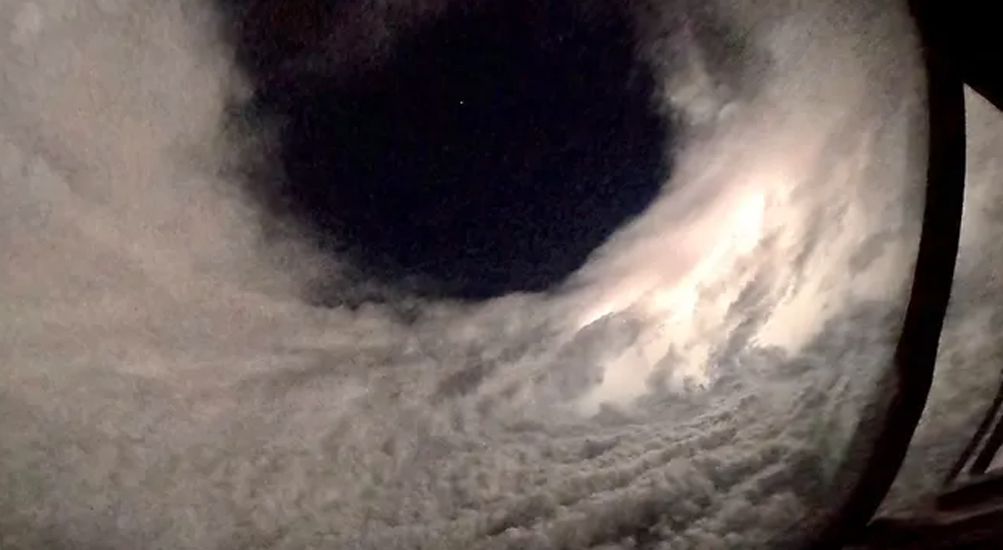Hurricane experts available to explain storm behavior, potential impacts
Scientists keep close watch on tropical cyclone activity
May 21, 2024 - by David Hosansky
May 21, 2024 - by David Hosansky

As hurricane season approaches, scientists at the U.S. National Science Foundation National Center for Atmospheric Research (NSF NCAR) and its managing organization, the University Corporation for Atmospheric Research (UCAR), are closely watching tropical cyclone activity and the potential for significant impacts. Forecasts indicate that the 2024 Atlantic hurricane season, which runs from June 1 to November 30, will be far more active than average.
Hurricane experts are available to explain issues such as:
Antonio Busalacchi, UCAR president (for interview requests, please contact David Hosansky or Audrey Merket)
Busalacchi, an expert on ocean-atmosphere interactions, has testified before Congress on the importance of improving the nation's weather, climate, and water forecasting capabilities. As a part-time New Orleans resident, he has firsthand experience with the impacts of powerful hurricanes.
Mrinal Biswas, NSF NCAR scientist
Biswas works to improve the prediction of hurricanes and other tropical cyclones, collaborating with both forecasters and researchers on ways to advance computer models and gather more detailed observations of the atmosphere and oceans. He focuses primarily on the Hurricane Analysis and Forecast System (HAFS) model, testing and evaluating physics innovations to better simulate storms.
Christopher Davis, NSF NCAR senior scientist and deputy director of NSF NCAR Education, Engagement & Early-Career Development
One of the world's leading tropical cyclone researchers, Davis studies the weather systems that lead to hurricanes and other major rainfall events. His expertise includes hurricane prediction and how computer models can be improved to better forecast storms.
Austin Harris, NSF NCAR postdoctoral researcher
Harris is a meteorologist who focuses on how hurricane evacuations are affected by forecast accuracy and local infrastructure, as well as how information is communicated to those in harm's way. Working with social scientists, climatologists, computer scientists, and others, he has developed a computer model called Forecasting Laboratory for Exploring the Evacuation-system (FLEE) to help scientists better understand evacuations with the ultimate goal of making forecasts more useful to society.
Terry Hock, NSF NCAR engineer
Hock is an electrical engineer and a global authority in dropsonde technology. Dropsondes are specialized instrument packages released into hurricanes from aircraft flying overhead, delivering crucial measurements of atmospheric conditions within the storm and enhancing forecasts of hurricane track and intensity. This technology is utilized worldwide on over 25 aircraft, advancing atmospheric research and supporting hurricane reconnaissance. NSF NCAR has been at the forefront of this technology since the 1970s.
Hui Li, NSF NCAR scientist
Li’s research focuses on Earth’s climate system, with an emphasis on better understanding tropical cyclones in a changing climate. She is especially interested in the feedbacks of tropical cyclones on the large-scale circulation patterns and climate modes of variability such as El Niño and La Niña.
Rebecca Morss, NSF NCAR senior scientist
Morss is an expert in the predictability of hurricane-related hazards, including storm surge flooding. Her research also focuses on hurricane and flood risk communication, and evacuation decision making.
Robert Prestley, NSF NCAR scientist
An expert in both meteorology and communications, Prestley explores the roles of authoritative sources of weather information, such as the National Weather Service, broadcast meteorologists, and emergency managers. In particular, he focuses on how those sources use imagery, especially on social media networks, to engage at-risk members of the public and promote taking protective action when hazardous weather strikes.
Rosimar Ríos-Berríos, NSF NCAR scientist
Ríos-Berríos is an expert in heavy precipitation associated with hurricanes and the reasons that certain storms undergo rapid intensification. A native of Puerto Rico who closely followed the intensification and impacts of Hurricane Maria, she is available for interviews in both English and Spanish.
Christopher Rozoff, NSF NCAR scientist
Rozoff conducts research in the areas of hurricane intensity change and rapid intensification, storm track prediction, hurricane turbulence near Earth’s surface, and the internal structure of hurricanes. His work has included using observations from satellites and from aircraft that intercept storms, as well as weather prediction models and specialized research models that are based on statistics, machine learning, and theory.
Andrea Schumacher, NSF NCAR scientist
Schumacher has spent almost two decades working with forecasters at the National Hurricane Center to co-develop new hurricane forecasting tools and risk messaging. Now her research focuses on interdisciplinary survey studies of the public before, during, and after hurricanes to better understand how they use information, perceive risk, and respond to hurricane risk. She also has expertise in the area of hurricane impacts on human health.
Jeff Weber, UCAR meteorologist
As a specialist in hurricanes and severe weather in general, Weber closely monitors the behavior of individual storms and the larger atmospheric and oceanic conditions that influence them.